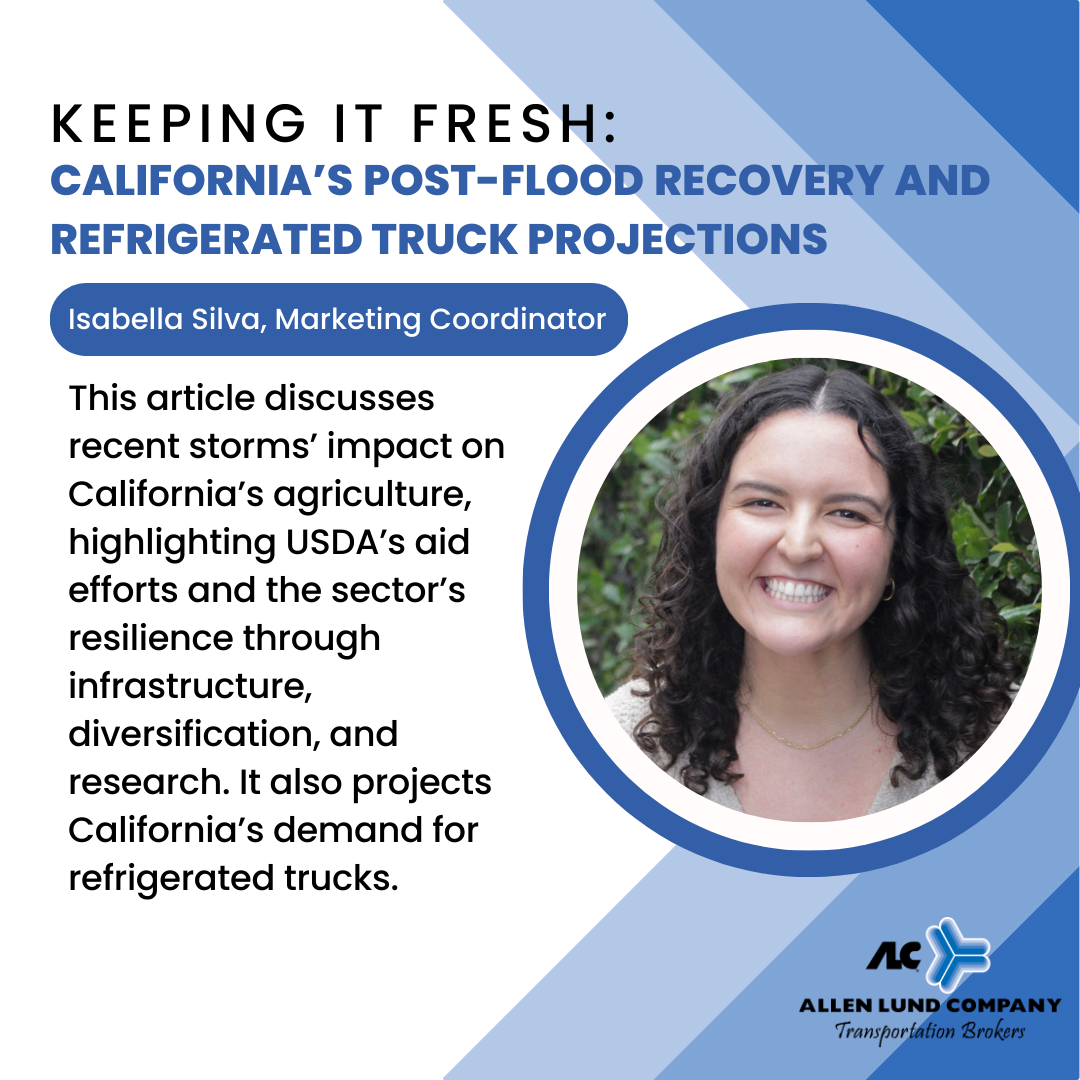
Recent storms in California have significantly impacted agricultural operations. However, the U.S. Department of Agriculture (USDA) is ready with technical and financial assistance to aid farmers and livestock producers in recovering from these adverse weather events. California’s agricultural sector has demonstrated remarkable resilience, supported by infrastructure enhancements, crop diversification, government assistance programs, and ongoing research and innovation efforts. It’s fascinating to note that California was in a severe drought just three years ago, highlighting the striking contrast in weather patterns. Nevertheless, both extremes resulted in similar agricultural shifts, noting the industry’s adaptability. This article explores the sector’s recovery from floods and projects California’s demand for refrigerated trucks.
According to the UC Agriculture and Natural Resources, investments in infrastructure, such as levees and irrigation systems, have played a crucial role in mitigating flood damage and protecting agricultural lands. Farmers in California have implemented crop diversification strategies by planting flood-tolerant varieties to minimize losses. Partnering with Full Belly Farm in Yolo County, California, the USDA California Climate Hub conducted an extensive case study emphasizing adaptation planning practices as opportunities to alleviate the impacts of extreme weather conditions. Their focus on building soil organic matter not only improves crop fertility, but also increases soil water retention and holding capacity. Ongoing research endeavors aim to develop flood-resistant crop varieties and innovative farming techniques, further enhancing the industry’s resilience against future flood events. As government-sponsored insurance and assistance programs offer crucial financial support to farmers, it’s important to see how this reflects the transportation industry.
DAT reported that citrus, almonds, avocado, and strawberry crops are expected to be impacted and have already contributed to 84% fewer truckloads of produce compared to this time last year. However, there’s still ample time for the 2024 produce season to regain its momentum, even with the national produce volumes down 17% from last year. With more resources, solutions, and research each year, California is continually improving its ability to address flooding challenges. This suggests a potential increase in the demand for refrigerated trucks in California’s agricultural supply chain, a positive sign for the industry’s recovery.


